7 composting tips everyone needs to know
Here’s how to make compost like a pro
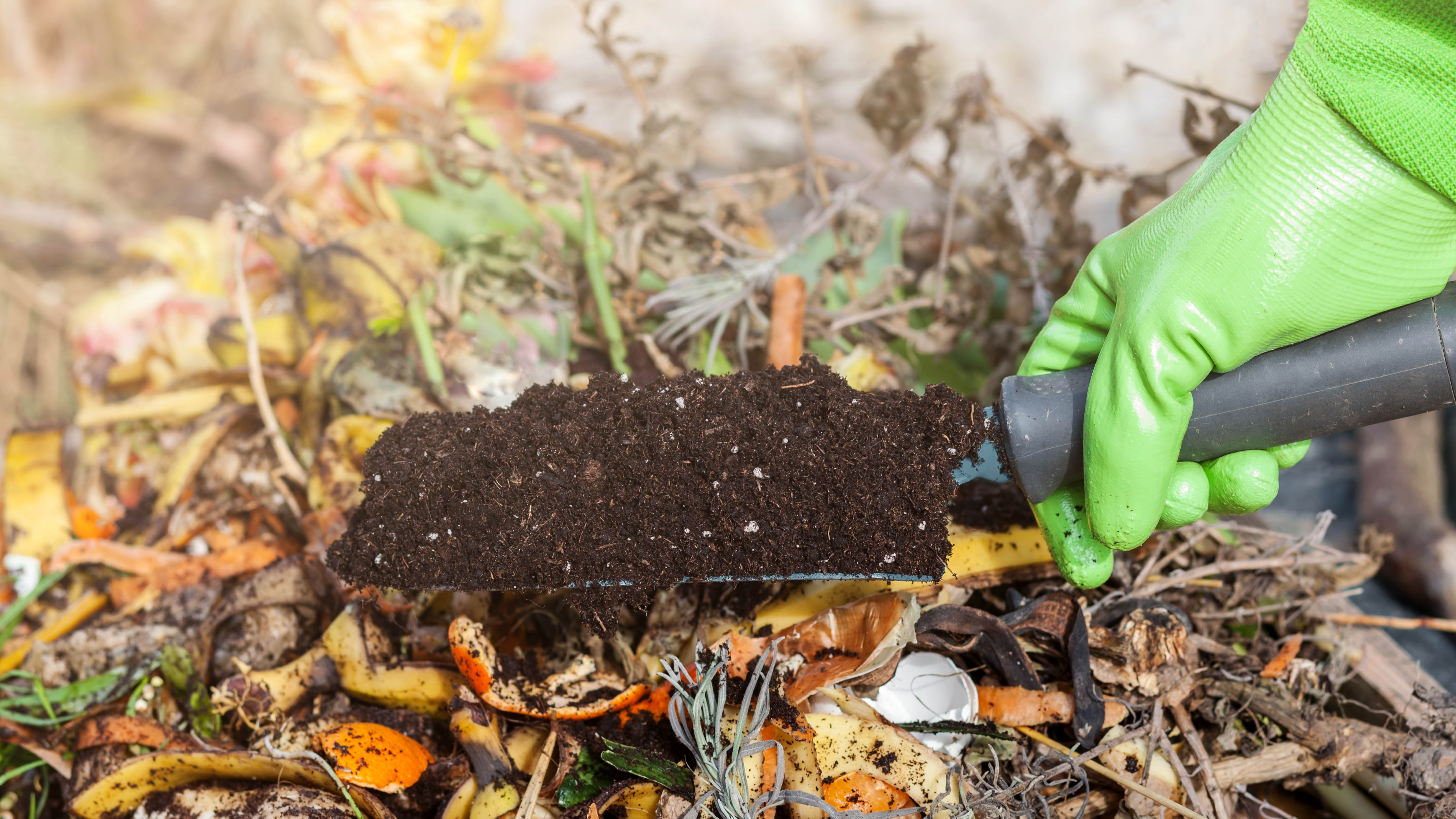
Here at Tom’s Guide our expert editors are committed to bringing you the best news, reviews and guides to help you stay informed and ahead of the curve!
You are now subscribed
Your newsletter sign-up was successful
Want to add more newsletters?

Daily (Mon-Sun)
Tom's Guide Daily
Sign up to get the latest updates on all of your favorite content! From cutting-edge tech news and the hottest streaming buzz to unbeatable deals on the best products and in-depth reviews, we’ve got you covered.

Weekly on Thursday
Tom's AI Guide
Be AI savvy with your weekly newsletter summing up all the biggest AI news you need to know. Plus, analysis from our AI editor and tips on how to use the latest AI tools!

Weekly on Friday
Tom's iGuide
Unlock the vast world of Apple news straight to your inbox. With coverage on everything from exciting product launches to essential software updates, this is your go-to source for the latest updates on all the best Apple content.

Weekly on Monday
Tom's Streaming Guide
Our weekly newsletter is expertly crafted to immerse you in the world of streaming. Stay updated on the latest releases and our top recommendations across your favorite streaming platforms.
Join the club
Get full access to premium articles, exclusive features and a growing list of member rewards.
Composting is a great way to turn organic matter into nutrient-rich soil to feed our gardens and improve lawncare. It's also sustainable, helping to reduce your kitchen waste, as well as recycling garden waste such as grass clippings. In fact, it’s what every gardener recommends to ensure a healthy yard an there are huge benefits to composting, and it's one of the 7 tips we recommend in how to upgrade your yard on a budget.
But if you’re a beginner, or your current technique isn’t working, you could benefit from these composting tips everyone needs to know. While it might seem easy enough to throw waste into a compost bin, there is a right way of doing so. What’s more, by making one or more of these composting mistakes could prevent waste from breaking down properly, or worse still, attract rats, mice or any other unwanted pests.
So what is composting? This is a process where organic waste is broken down (or "eaten"), by naturally occurring microorganisms like worms, sowbugs, and nematodes. These beneficial insects break down the waste, changing its structure to create a healthy feed for soil. However, the end results will also depend on the composting process.
Luckily, there are some tips and tricks to ensure the right texture and consistency for nutrient-rich soil to make your garden healthy. So, if you want to garden like a pro, here are 7 composting tips everyone needs to know.
1. A compost tumbler bin might make life easier
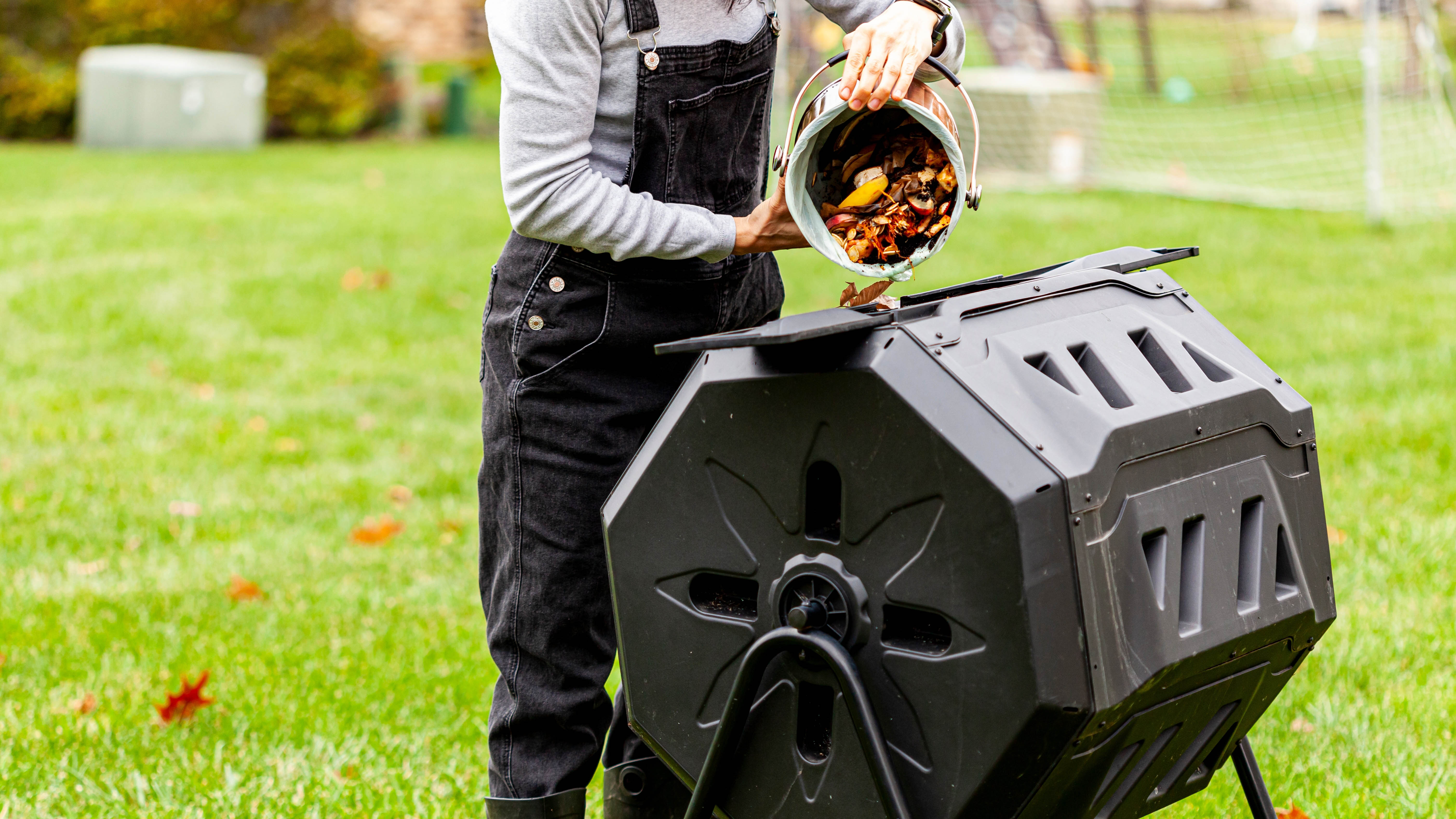
While you can compost anywhere, it’s important you get the right compost bin suitable for your outdoor space. If you have a smaller yard or want something low-maintenance (who doesn’t?), experts recommend buying a compost tumbler.
This rotating compost bin is easy to use, and features aeration holes allowing air each time you turn it. This is especially useful since composting involves turning it over now and again to allow air to all parts. In a standard compost bin, you need to stir around with a garden fork or space — but this can often become a tiresome chore.
With a compost tumbler, all you’ll need to do is close the chambers, and use the crank handle to turn it five or six times every two to three days. In addition, compost tumblers are also easier to empty than standard compost bins — simply place the wheelbarrow directly under the drum to empty. Just bear in mind that the larger the tumbler, the heavier it will be to turn once it gets to full capacity. In any case, it’s always best to find a compost bin to suit your space and lifestyle.
Get instant access to breaking news, the hottest reviews, great deals and helpful tips.
Tumblers available online like this FCMP Outdoor IM4000 Dual Chamber Tumbling Composter ($76, Amazon), are a great option for beginners.
2. Get the right balance of greens and browns
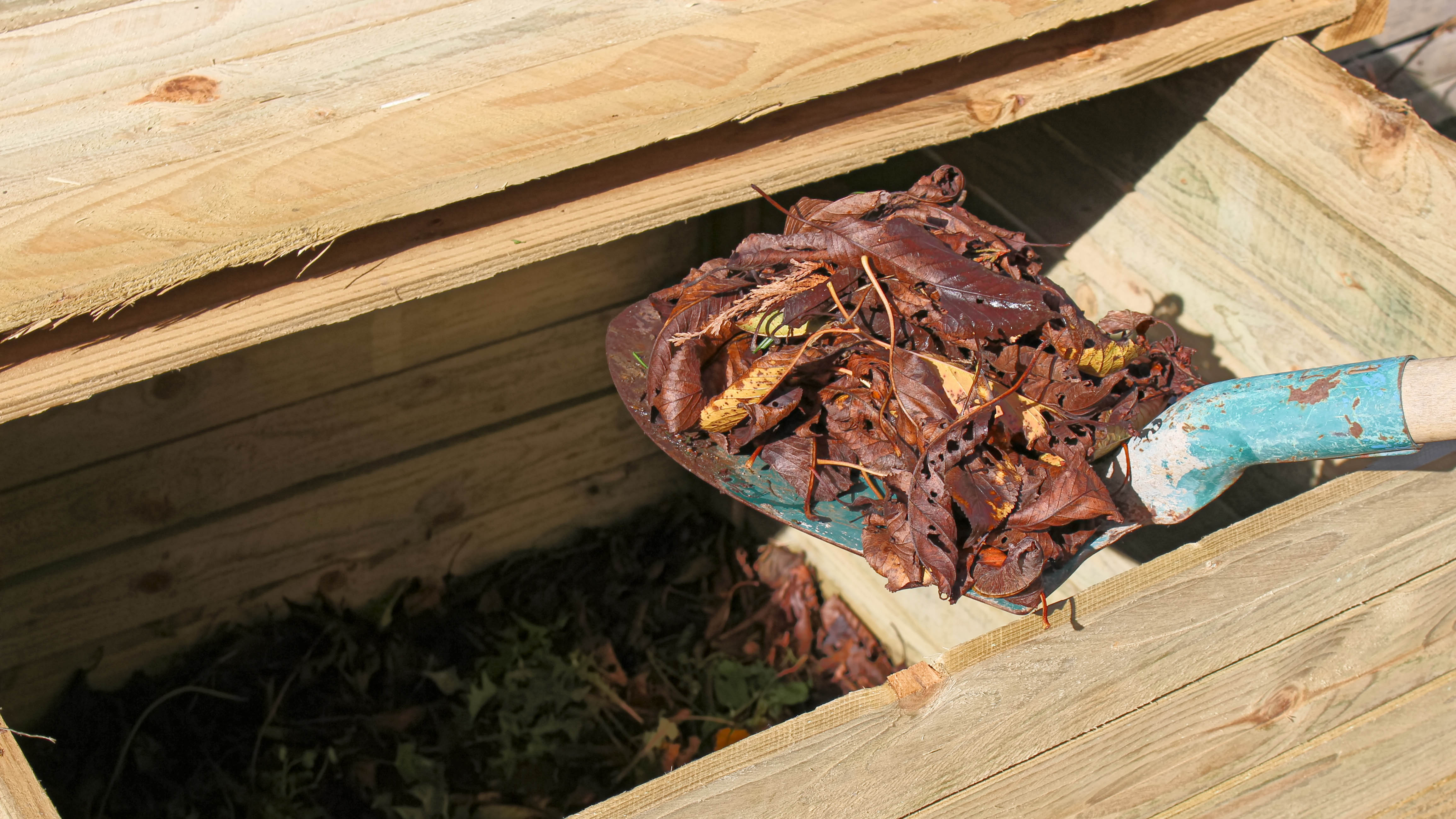
If you’re wondering why your compost heap is taking too long to break down, maybe you don’t have the right balance of green and brown matter?
Similar to "cooking" up a recipe, compost needs the right ratio of green and brown materials to work well. Experts recommend a simple ratio of 1-to-1, or 50% green compost and 50% brown compost. Although there are some gardeners who prefer a ratio of three parts brown materials to one part green material. In any case, the natural process of decomposition will happen with this mixture.
Typically, brown (dry) materials are high-carbon, such as dried leaves, tree debris, straw, sawdust or shredded paper. While the green (wet) materials contain high levels of nitrogen which include fresh grass clippings, food scraps or even coffee grounds. Without the right balance, the compost will not properly decompose, or lack the essential nutrients it needs for fertile-rich soil.
3. Don’t forget to remove produce stickers
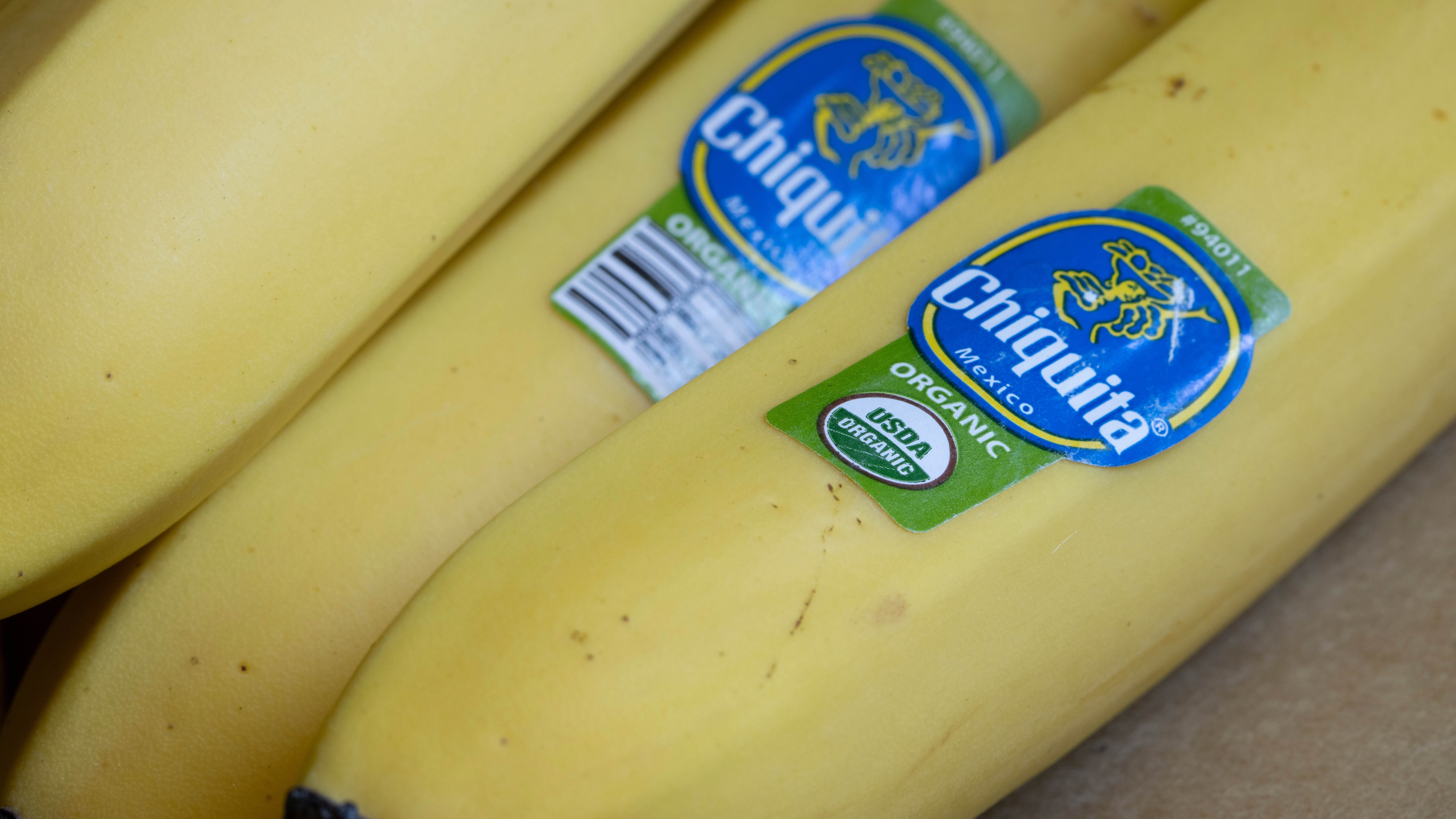
Don't forget to remove any produce stickers when throwing out peels or skins in the compost heap. These are usually made from plastics, and are not biodegradable. Not only won't it break down in the compost heap, but the plastic particles will remain in the soil for years. Plus, they have no flavor or nutritional value!
Before composting, always remove any stickers and dispose of them in the regular waste bin. In fact, peel them off before putting fruit and veggies in your fridge!
Similarly, it’s important to know these things you should never throw on the compost heap to ensure successful composting.
4. Slice or chop up larger materials
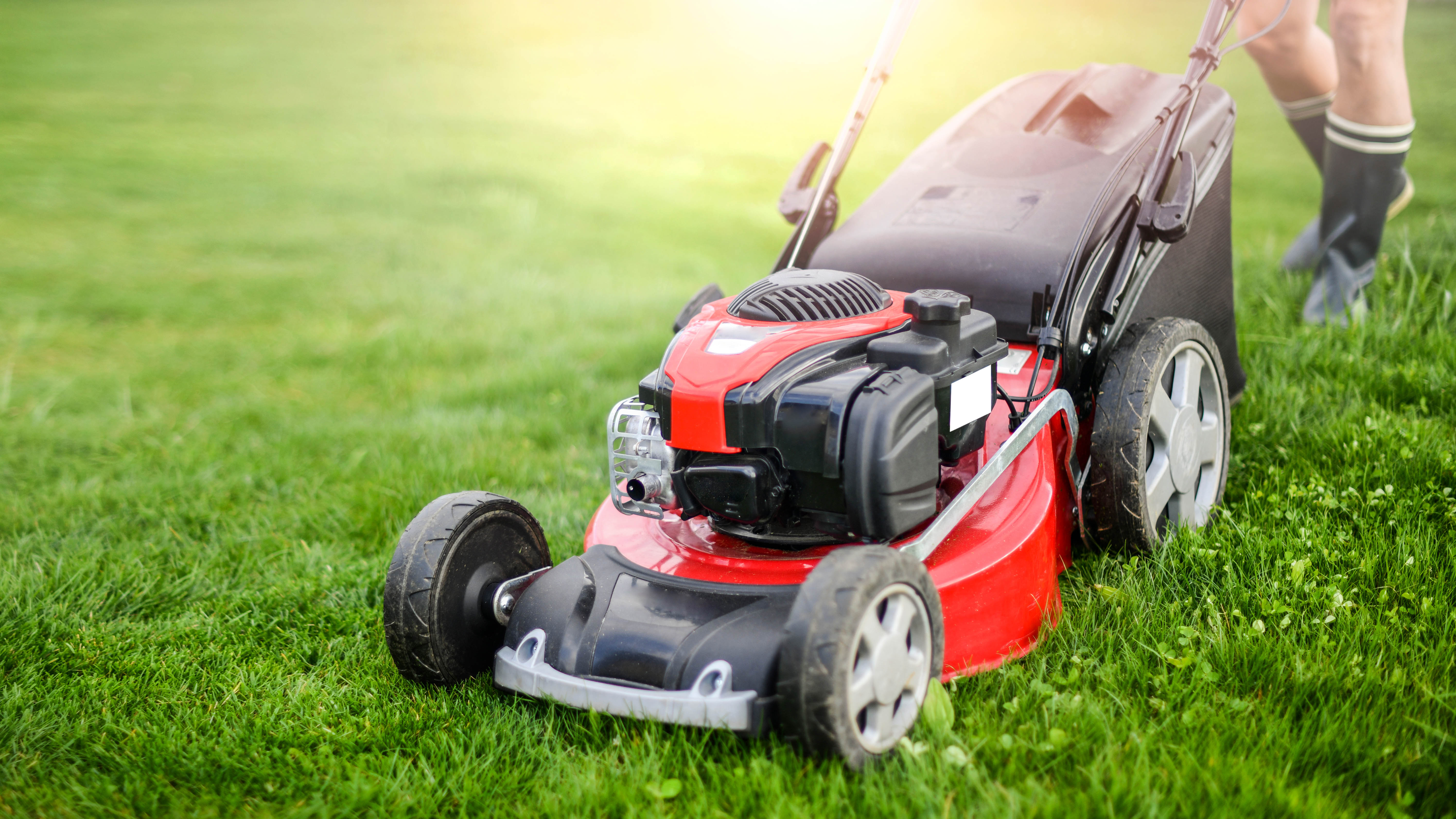
Instead of just chucking everything onto the compost heap, chop or break down larger organic waste into pieces. Shredding down into smaller pieces will make it quicker for waste to decompose, also making it easier for the microorganisms to do their work.
For yard debris, you can use one of the best pruning shears to break it all down, or you can even use your lawn mower to shred garden waste.
5. Top up with water if needed
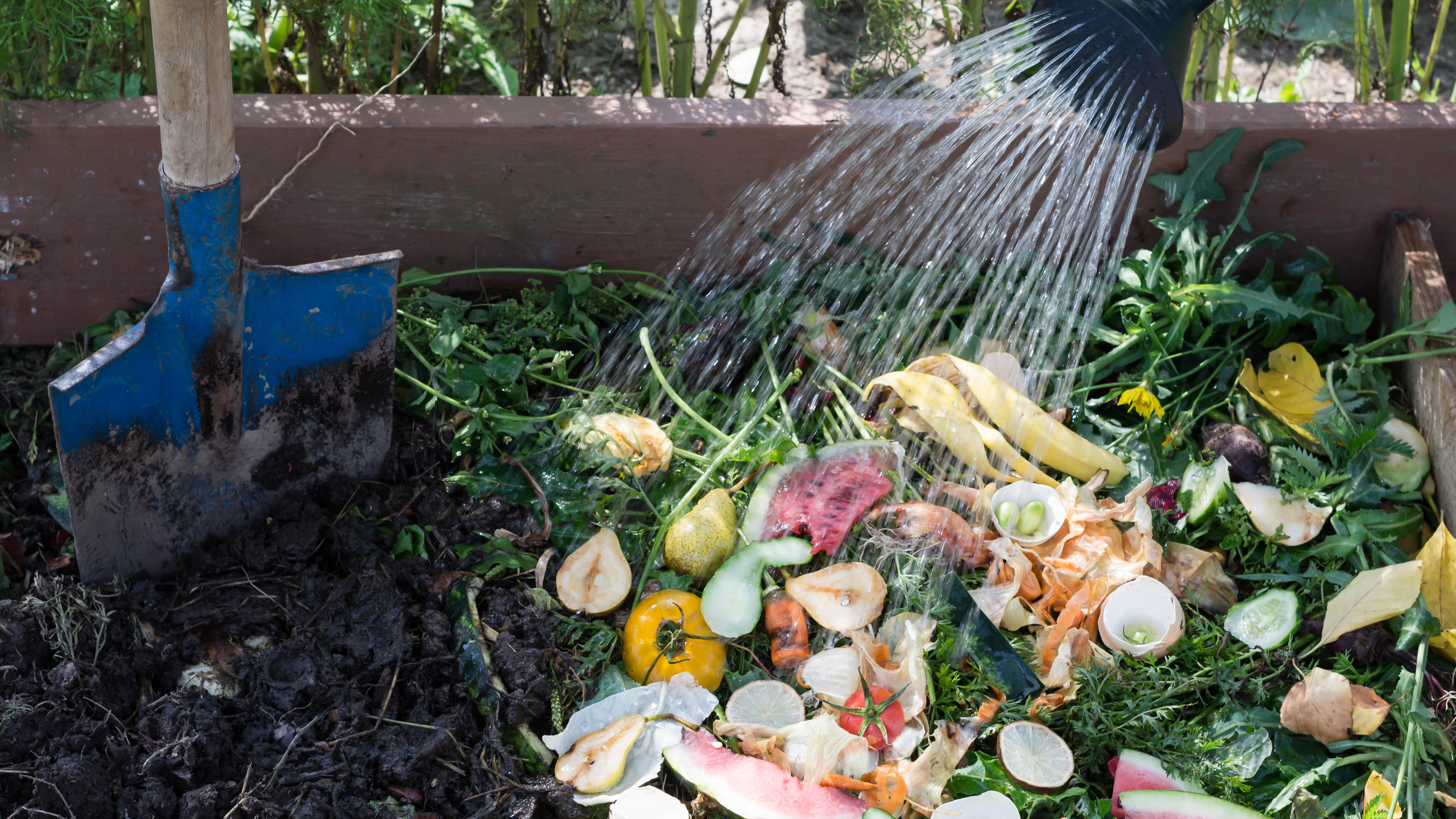
Generally, the compost pile needs to remain moist but not wet or soggy, for the decomposition process to speed up. Without the right levels of moisture, this will make the conditions tough for the microbes to get to work.
If your compost heap looks extremely dry and brown, slightly water it to make it damp, or add more ‘green’ items such as grass clippings, or kitchen waste. Ideally, compost needs to be the same texture to a damp sponge — so don’t overwater it. Too much water will make it become waterlogged, potentially drowning those beneficial microorganisms, or risk causing rot.
In addition, if your compost pile looks too wet or smelly, add more (dry) brown items to absorb excess moisture, or turn over with a garden fork to aerate the heap. Also, if it’s a warm, sunny day, you can prop open the lid of your compost bin to allow the sunshine to dry your waste materials. This will help to speed up the composting process.
6. Make sure you get the ‘critical’ quantity

Although you might want to speed up the process and make the perfect compost, patience is key! Avoid overfilling your compost heap with too much waste, as this won’t allow enough space for everything to decompose properly.
Experts recommend a "critical quantity" is needed to generate a heat core for the compost to "cook." Depending on the size of your compost bin, the minimum volume is around 36 x 36 x 36 inches. Try to add all the organic matter in one go, and don’t add more to the pile. In addition, overfilling your heap will make it tricky to turn over and aerate the compost thoroughly. Plus, it would most likely end up a messy task!
Depending on the temperature of your pile, it usually takes between three weeks and three months to get hot in the middle, which is a good sign that it's decomposing well. When you have more surface area, this allows all the beneficial microbes to do their work much faster. Ideally, you want an earthy, crumbly, dark texture before you can use it around your yard. So don’t delay the process by literally piling everything onto your heap.
7. Cover up food scraps
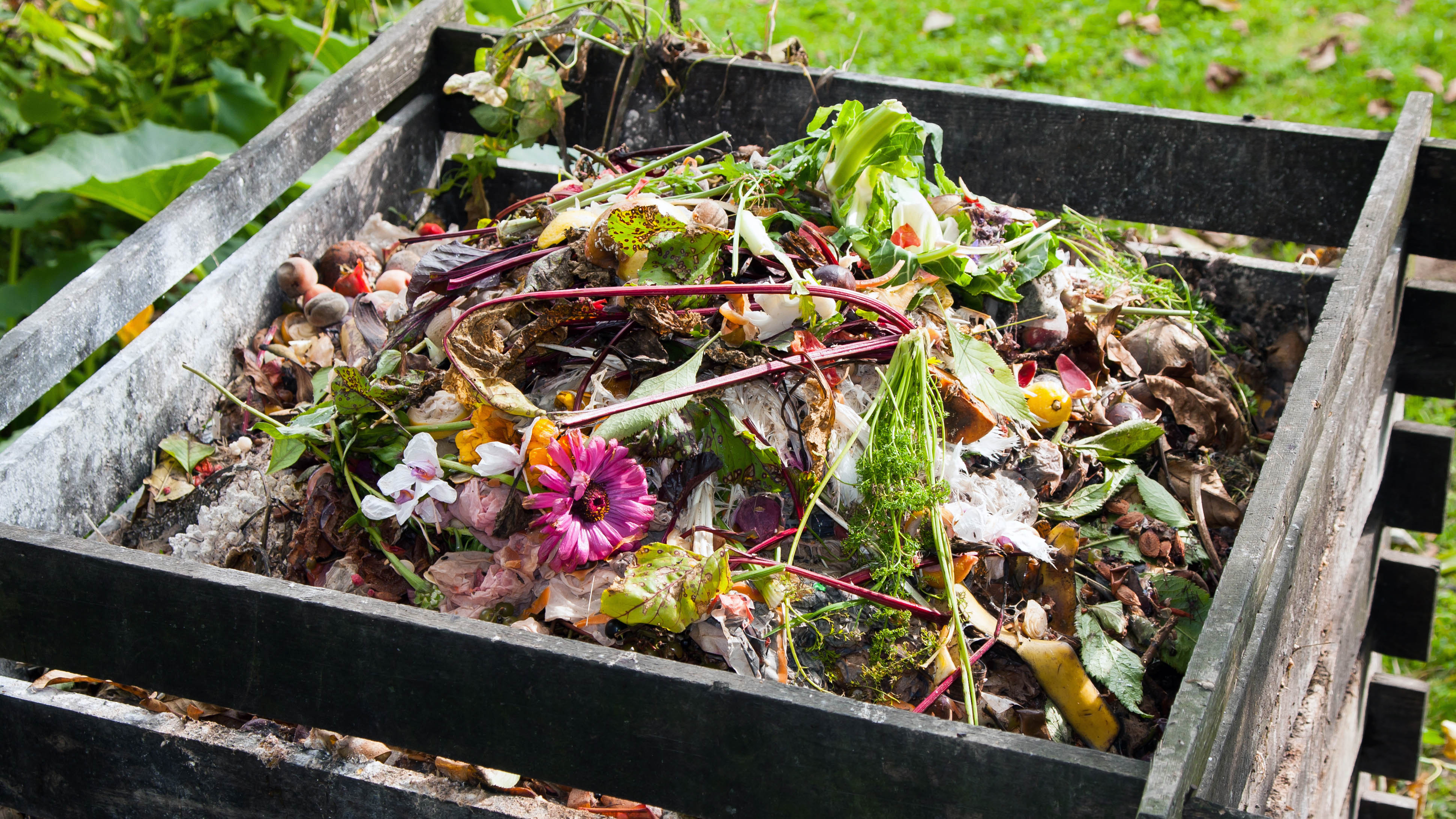
Another top composting tip is to cover up food waste, rather than leaving it sat on top of the pile. If not, this will start to smell, or attract rodents and other pests. And the last thing you want is to know how to get rid of rats or raccoons in your yard.
Experts recommend adopting a lasagne-style method of composting. Begin with a layer of dried leaves on the bottom and create a hollow nest in the middle to place any food scraps. Completely cover the food waste with another thick layer of brown material, making sure none of the waste is exposed. Then you can repeat the layering process, making sure you have a balanced composition of green and brown waste.
How long does it take to make compost?
Depending on your materials, conditions, and method, it could take anywhere from a several weeks to several years to make compost.
More from Tom's Guide
- 7 surprising household items to help your plants grow
- Here’s how to make your lawn thicker in 7 simple steps
- Top tips on how to make your grass greener

As the Homes Content Editor, Cynthia Lawrence covers all things homes, interior decorating, and garden-related. She has a wealth of editorial experience testing the latest, ‘must-have’ home appliances, writing buying guides and the handy ‘how to’ features.
Her work has been published in various titles including, T3, Top Ten Reviews, Ideal Home, Real Homes, Livingetc. and House Beautiful, amongst many.
With a rather unhealthy obsession for all things homes and interiors, she also has an interior design blog for style inspiration and savvy storage solutions (get rid of that clutter!). When she’s not testing cool products, she’ll be searching online for more decor ideas to spruce up her family home or looking for a great bargain!
 Club Benefits
Club Benefits










